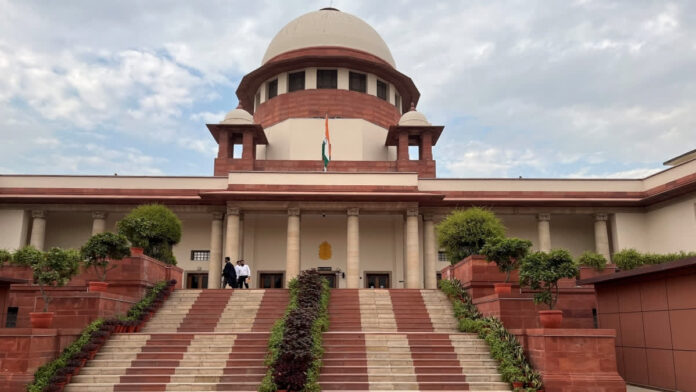In a recent ruling, the Supreme Court reaffirmed that an agreement to sell does not grant any title or transfer ownership to the intended buyer. The decision was made in response to a plea in which it was questioned whether or not the parties’ May 1990 agreement to sell a piece of property had really been completed. A bench of Justices Vikram Nath and Rajesh Bindal stated in their ruling earlier this month that the agreement to sell “is not a conveyance; it does not transfer ownership rights or confer any title.”
According to the facts of the case, the intended buyer had agreed to pay the entire price and purchase a home from the suggested seller. The buyer also received custody of the item. Additionally, it was decided that the appellant would own all rights to the in-question property as of the Agreement to Sell’s execution, leaving the respondents with no rights whatsoever.
But because the sale deed could not be registered, it was agreed that the sale deed would be carried out as soon as this limitation was removed. Section 5 of the Karnataka Prevention of Fragmentation and Consolidation of Holdings Act, 1996, contained a bar that prevented the sale.
The Fragmentation Act was soon repealed. Subsequently, the appellant alleges that they continually asked the respondents to execute the sale deed, which was only a formality because the appellant had already paid the full sale consideration and had taken possession of the property in question, which they were still holding.
The respondents persisted in delaying the sale deed’s execution in spite of this. The appellant filed a lawsuit for specific performance when the sale deed was not completed in spite of the court notice. The action was, however, dismissed by the trial court. The Trial Court’s ruling was mainly supported by the conclusion that there was a question about the Agreement to Sell’s execution. The lawsuit was brought after the statute of limitations was further held.
In 2010, the Karnataka High Court upheld the intended seller’s decision in a second appeal, finding that the agreement violated the 1996 Karnataka Prevention of Fragmentation and Consolidation of Holdings Act, which forbade the registration of sales of property fragments unless they conformed to the Act’s provisions.
The Supreme Court heard an appeal from the prospective buyer and observed that neither party had previously brought up the Fragmentation Act problem in the trial court.
“There was no issue framed with respect to the violation of the Fragmentation Act, and it was not pleaded in the written statement filed by the respondent,” the top court stated in allowing the appeal. The respondent’s position was that the agreement to sell was never executed by him. Nonetheless, he acknowledged signing the agreement to sell in his deposition under cross-examination. Thus, it appears that the High Court erred in ruling that the agreement to sell violated Section 5 of the Fragmentation Act, as no issue was raised and no party has claimed that any of the Act’s provisions were broken.
“What is even more noticeable is that the respondents received full consideration and had also transferred possession of the property in question,” the Supreme Court continued.






